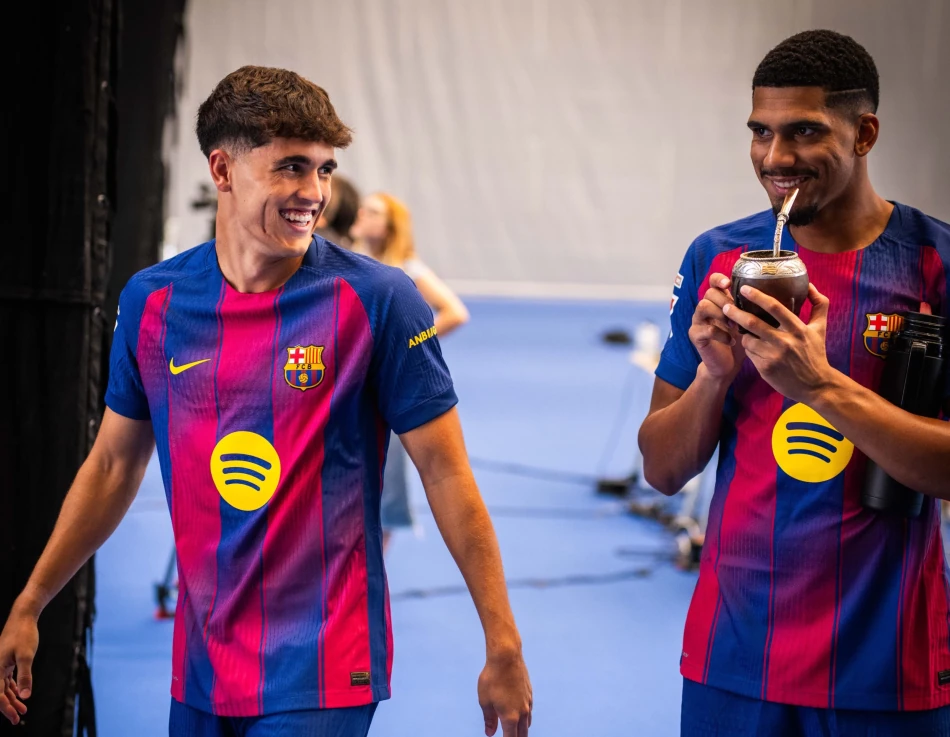
Barcelona Explores the Risks of High-Pressing Tactics in La Liga
Barcelona's Championship Defense Hinges on Solving Defensive Frailties While Maintaining Goal-Scoring Prowess
Barcelona enters the new La Liga season as defending champions with a fascinating paradox: a team that scored 102 goals to claim last year's title must now prove it can tighten its defense without sacrificing the attacking brilliance that made it unstoppable. With limited transfer funds compared to Real Madrid's €172 million spending spree, Hansi Flick faces the tactical challenge of his career—fixing Barcelona's defensive vulnerabilities while preserving the explosive offense that delivered a domestic treble.
The Double-Edged Sword of Flick's High-Pressing System
Flick's high-intensity pressing approach transformed Barcelona into an attacking juggernaut last season, with young stars Lamine Yamal and Raphinha leading a devastating front line. The system's success was undeniable—100+ goals and a La Liga title speak volumes about its effectiveness.
However, the Champions League semi-final defeat to Inter Milan, losing 7-6 on aggregate, exposed the inherent risks of Flick's tactical setup. The German coach's commitment to a high defensive line left Barcelona vulnerable to counter-attacks, creating heart-stopping moments even in victories.
After the thrilling 4-3 El Clasico victory over Real Madrid that essentially sealed the title, Flick admitted his tactical anxiety: "For me, it's not always enjoyable—sometimes I suffer a lot. Of course, football is a game of mistakes. We hope we can improve our performance and reduce our errors."
Youth vs. Experience: Can Barcelona Maintain Offensive Output?
The Raphinha Factor
At 28, Raphinha delivered the best season of his career, but expecting similar output at his age presents realistic concerns. Peak performance years for wingers typically occur in their mid-twenties, making his continued excellence less certain.
Lewandowski's Age Dilemma
Robert Lewandowski will turn 37 this month, entering an age bracket where even elite strikers show noticeable decline. While his professionalism and fitness remain exemplary, Barcelona cannot ignore the biological reality that threatens their goal-scoring consistency.
Yamal: The Crown Jewel
Eighteen-year-old Lamine Yamal represents Barcelona's brightest hope, inheriting Messi's iconic number 10 jersey. His precocious talent suggests he'll shoulder increasing responsibility, but relying heavily on a teenager—regardless of his exceptional ability—carries inherent risks in a demanding season.
Financial Constraints vs. Real Madrid's Spending Power
The contrast between Barcelona's limited transfer activity and Real Madrid's aggressive market approach highlights the Catalan club's ongoing financial struggles. While Madrid secured Trent Alexander-Arnold, Dean Haugen, Álvaro Carreras, and Franco Mastantuono for over €172 million, plus appointed Xabi Alonso as their new coach, Barcelona made strategic, budget-conscious moves.
The loan signing of Marcus Rashford from Manchester United provides attacking depth and reduces Lewandowski's workload—a shrewd move that addresses squad rotation without major financial commitment. This approach mirrors successful strategies employed by clubs like Juventus and AC Milan during their own financial constraints.
Goalkeeping Revolution: García's Crucial Role
Barcelona's acquisition of Joan García from local rivals Espanyol addresses what many considered their weakest position. While Wojciech Szczęsny performed admirably after coming out of retirement to replace injured Marc-André ter Stegen, García represents a long-term solution.
The young goalkeeper's familiarity with Spanish football and Barcelona's playing style could prove decisive in tight matches where defensive organization becomes paramount.
Camp Nou Return: The X-Factor
Barcelona's return to the renovated Camp Nou after two seasons at the Olympic Stadium on Montjuïc hill represents more than symbolic significance. The psychological boost of playing in their historic fortress, combined with improved facilities, could provide the marginal gains necessary in title races.
The club's first home match will be against Valencia in the fourth round, following three away fixtures. This timing allows for a grand reopening that could galvanize both players and supporters after the disappointment of previous delays.
Market Perspective: High Stakes for Flick's Tactical Evolution
From an investment standpoint, Barcelona's approach represents calculated risk management. Rather than expensive defensive signings, they're betting on tactical refinement and youth development—a strategy that could either validate their financial prudence or expose their competitive limitations.
The success of this model will influence how other financially constrained elite clubs approach squad building, potentially establishing a blueprint for sustainable competitiveness without massive transfer expenditure.
Championship Defense Outlook
Unlike last season when Barcelona began as underdogs to Real Madrid's galáctico project, they now enter as marked champions with elevated expectations. Flick's challenge lies in maintaining the attacking fluidity that defined their title-winning campaign while implementing the defensive discipline necessary for sustained success.
The integration of García, Rashford's versatility, and the continued development of Yamal, Pau Cubarsí, and Pedri will determine whether Barcelona can repeat their domestic dominance while making deeper European progress. Success requires proving that tactical evolution, rather than expensive signings, can solve defensive deficiencies without compromising offensive excellence.
Most Viewed News

 Sara Khaled
Sara Khaled






